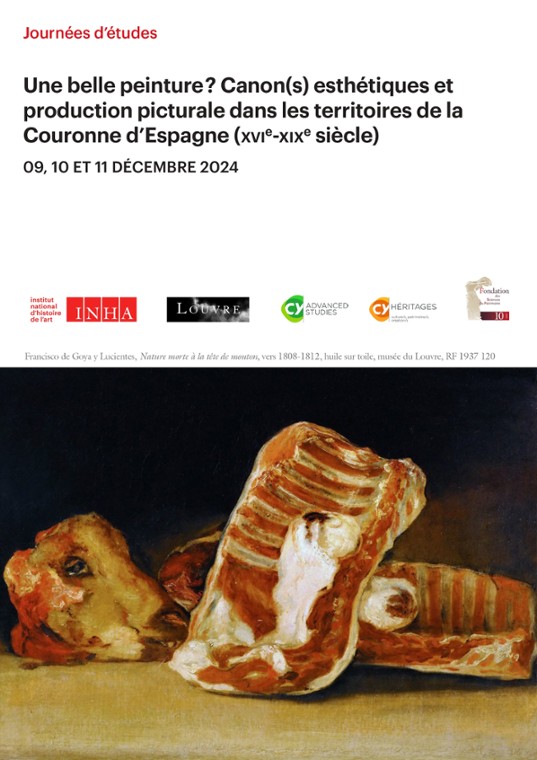Research events
A beautiful painting? Aesthetic Canons and Pictorial Production in the Territories of the Spanish Crown (16th- 19th centuries)

Go to content Navigation Direct access Connection
